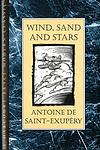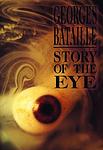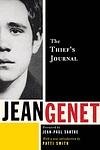The Greatest French "Spain" Books of All Time
Click to learn how this list is calculated.
This list represents a comprehensive and trusted collection of the greatest books. Developed through a specialized algorithm, it brings together 300 'best of' book lists to form a definitive guide to the world's most acclaimed books. For those interested in how these books are chosen, additional details can be found on the rankings page.
Genres
The "Spain" category of books refers to literature that is set in or about Spain, its culture, history, and people. This category includes a wide range of genres such as fiction, non-fiction, memoirs, travelogues, and historical accounts. Books in this category may explore the rich history of Spain, its diverse regions, its art and architecture, its cuisine, and its people. They may also delve into the country's political and social issues, its traditions, and its contemporary culture. Overall, the "Spain" category offers readers a fascinating glimpse into the vibrant and complex world of Spain.
Countries
Date Range
Reading Statistics
Click the button below to see how many of these books you've read!
Download
If you're interested in downloading this list as a CSV file for use in a spreadsheet application, you can easily do so by clicking the button below. Please note that to ensure a manageable file size and faster download, the CSV will include details for only the first 500 books.
Download-
1. The Mediterranean And The Mediterranean World In The Age Of Philip Ii by Fernand Braudel
This seminal work offers a comprehensive analysis of the Mediterranean region during the 16th century, focusing on the complex social, political, and economic landscapes that defined the era of Philip II of Spain. The book transcends traditional historiography by emphasizing the geographical and ecological factors that shaped human activity, from the ebb and flow of commerce and the patterns of agrarian life to the rise and fall of empires. Through a meticulous study of the Mediterranean world, the narrative weaves together the intricate tapestry of cultures, religions, and power dynamics that characterized the period, providing a vivid portrayal of the enduring influence of the environment on the course of human history.
-
2. Carmen by Prosper Mérimée
"Carmen" is a novella that tells the tragic story of the downfall of Don José, a naïve soldier who is seduced by the wiles of the fiery gypsy, Carmen. José abandons his childhood sweetheart and deserts from his military duties, yet he is unable to tame Carmen's free spirit. Carmen's lawless nature leads her to fall in love with a successful bullfighter and ultimately seals her fate.
-
3. Wind, Sand and Stars by Antoine de Saint-Exupéry
This book is a memoir by an early twentieth-century French aviator, sharing his experiences as a pioneer of aviation in the 1920s and 1930s, particularly in remote places such as the Sahara Desert and the Andes Mountains. The author reflects on the nature of adventure, the allure of the unknown, and the profound connection between human beings and the natural world. The book is also notable for its philosophical musings on the nature of life and death, solitude and solidarity, and the human condition.
-
4. Le Cid by Pierre Corneille
"Le Cid" is a dramatic play that follows the story of a young nobleman who is torn between love and honor. The protagonist is faced with a dilemma when he is ordered to kill his beloved's father in a duel to defend his own father's honor. Despite his love for his girlfriend, he chooses honor over love and kills her father, leading to a series of tragic events. The play explores themes of duty, honor, and the moral complexities of revenge.
-
5. Blue of Noon by Georges Bataille
"Blue of Noon" is a provocative novel set in 1930s Europe during the rise of fascism. The story follows the life of an Englishman living in Paris, who is embroiled in a self-destructive cycle of sexual escapades and political extremism. His journey takes him through various European cities, where he engages in debauchery and encounters the political turmoil of the time. The book explores themes of existentialism, nihilism, and the human condition, offering a dark and complex portrayal of a man's struggle with his inner demons and the chaotic world around him.
-
6. The Satin Slipper by Paul Claudel
"The Satin Slipper" is a complex and symbolic narrative that explores the themes of love, faith, and destiny. Set in the 16th century, the story revolves around two characters, a Spanish conquistador and a married lady of the Spanish court, who are deeply in love but are kept apart by their respective duties and responsibilities. Their love story is intertwined with historical events and mythical elements, creating a rich tapestry of human emotions and spiritual contemplations.
-
7. The Thief's Journal by Jean Genet
The book is a fictionalized account of the author's experiences in the criminal underworld of early 20th-century Europe. It is a narrative that delves into the life of a man who embraces his identity as a thief and a homosexual, exploring the intersections of crime, sexuality, and social defiance. The protagonist navigates through various relationships with fellow outcasts and criminals, while also confronting the moral codes of society. The work is known for its poetic and introspective prose, as well as its exploration of themes such as betrayal, freedom, and the search for beauty within the margins of society.
-
8. The Song of Roland by Unknown
"The Song of Roland" is an epic poem based on the Battle of Roncevaux Pass in 778 during the reign of Charlemagne. The story revolves around the hero, Roland, and his loyalty to his king, Charlemagne. As a commander of the rearguard of Charlemagne's army, Roland is betrayed by his stepfather, Ganelon, which leads to a disastrous battle with the Saracens. Roland's heroic deeds, his friendship with Oliver, and his tragic death are central to the narrative. The poem is a major part of the medieval European literature, emphasizing the code of chivalry and the duties of a knight.
-
9. The History Of Gil Blas Of Santillana by Alain-René Lesage
This classic picaresque novel follows the adventures and misadventures of the young Spaniard, Gil Blas, as he navigates through the ups and downs of life, from poverty to wealth, from servant to nobleman, across the varied landscape of 17th-century Spain. Through a series of engaging episodes, the protagonist encounters a wide array of characters, from rogues and thieves to honest men and true friends, experiencing firsthand the vices and virtues of humanity. The narrative, rich in satire and social commentary, humorously critiques the corruption and folly of society, while also exploring themes of fate, ambition, and morality. Through Gil Blas' journey, the reader is offered a vivid and entertaining portrait of Spanish life and culture during the period.
-
10. Leo Africanus by Amin Maalouf
This historical novel follows the life of a real-life Andalusian-born traveler of the 16th century, who is captured by Christian pirates and presented as a gift to the Pope. Renamed after the pontiff, he becomes a respected scholar and diplomat, navigating the complex cultural and religious divides of the Mediterranean world. Throughout his journeys, which take him from his birthplace in Granada to Fez, Timbuktu, Constantinople, and Rome, he witnesses the tumultuous events of his time, including the fall of Granada and the rise of the Ottoman Empire. His story is one of identity, belonging, and the universal quest for knowledge and understanding amidst a backdrop of conflict and change.
-
11. Man's Hope by Andre Malraux
Set against the backdrop of the Spanish Civil War, the novel delves into the complexities of political and personal struggle, following a diverse group of individuals united by their commitment to the Republican cause. These characters, ranging from idealistic volunteers to seasoned militants, grapple with the brutal realities of warfare, the ideological conflicts within their own ranks, and the sacrifices demanded by their shared pursuit of a hopeful vision for humanity. Through their intertwined stories, the narrative explores themes of courage, camaraderie, and the often tragic nature of revolutionary fervor, painting a vivid portrait of a pivotal moment in 20th-century history.
-
12. The Possibility Of An Island by Michel Houellebecq
The novel explores the life and thoughts of a successful comedian who, disillusioned with the superficiality and decay of human relationships in a hedonistic society, becomes involved with a cult that seeks immortality through cloning and genetic manipulation. As the narrative alternates between the comedian's experiences and the reflections of his future cloned descendants, it delves into themes of existential despair, the search for meaning, and the consequences of eternal life. The story weaves a bleak and satirical tapestry of humanity's obsession with youth, sex, and death, ultimately questioning the very nature of human progress and happiness.
Reading Statistics
Click the button below to see how many of these books you've read!
Download
If you're interested in downloading this list as a CSV file for use in a spreadsheet application, you can easily do so by clicking the button below. Please note that to ensure a manageable file size and faster download, the CSV will include details for only the first 500 books.
Download










